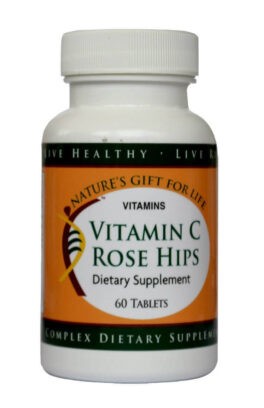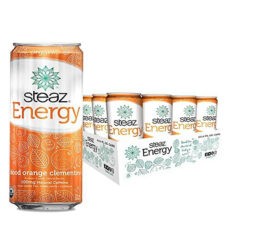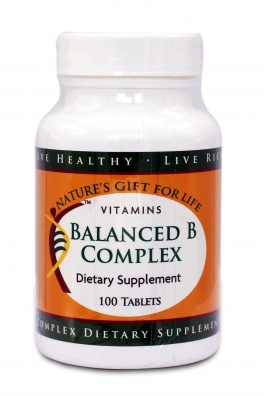Green Tea Standardized
1 in stock
- Contains EGCG, which slows aging
- It’s rich in bioflavonoid, and protects against digestive and respiratory infections.
- It has thermogenic effects that aids in weight loss without causing jitters or other unwanted side effects
- Green tea extract helps decrease hormone activity and is an effective treatment for acne.
>>>Read More
24,015CFA
1 in stock
Detailed Product Description / Supplement Facts
Benefits:
- Green tea extract contains EGCG, a powerful antioxidant 200 times more potent than vitamin E, which slows aging.
- It’s rich in bioflavonoid, and protects against digestive and respiratory infections.
- It has thermo genic effects that aids in weight loss without causing jitters or other unwanted side effects
- Green tea extract helps decrease hormone activity and is an effective treatment for acne.
- It is anti-bacterial, helps lower cholesterol, reduces inflammation
- It also helps prevent some forms of cancer including colon, pancreatic, and stomach cancer.
- It stimulates the immune system.
- It also protects against liver damage. It protects liver against toxins like alcohol and chemicals in cigarette smoke.
- It possesses antimicrobial properties that support immune-system health
- It supports healthy kidney function.
- Some new research suggests green tea may help prevent liver transplant failure in patients.
- Acts as an antidote and anti-radiation agent (natural filter for UV rays)
- It possesses antibacterial and antiviral properties.
- Stops the unnatural formation of blood clots, which if not taken care of will cause thrombosis.
- Reduces high blood pressure by repressing angiotensin II, which causes constriction of the blood vessels causing high blood pressure.
- Lowers blood sugar (polyphenols and polysaccharides are the two main antioxidants are especially effective in lowering blood sugar). That helps prevent and relieve type-two diabetes.
- Promotes oral health by suppress the process of plaque formation and destroys the bacteria that forms plaque. It also destroys bacteria, which cause bad breath, so after eating something sweet it is wise to drink a cup of green tea.
- Possess antibacterial and antiviral properties. Recent studies show that green tea inhibits the spread of disease, speeds up recovery from cold and flu. It also kills seven strains of food poisoning bacteria including clostridium, botulus and staphylococcus (which make it a good treatment for diarrhea).
- Helps your body to maintain healthy fluid balance and relieve fatigue and stress often caused by dehydration.
- Blocks main receptors that produce allergic reactions.
- Stimulates metabolism, calorie burning process and is wildly being used as an important part of a healthy diet.
What is the difference between Green Tea Extract and green tea leaf?
Legend has it that in ancient times, a Chinese emperor was drinking some hot water when leaves from a nearby tea shrub (Camellia sinensis) dropped into his cup. He apparently liked the soothing drink that resulted from this chance event. This began what is today a worldwide love affair with tea. It’s now second only to water as the most popular drink in the world.
Interestingly, research studies in recent years have confirmed the presence of various healing substances that provide the therapeutic properties long ascribed to the ubiquitous tealeaf.
To prepare green tea, the leaves of Camellia sinensis are steamed, rolled, and dried. Black and oolong teas come from the same plant, but the leaves are processed differently (they are fermented) and therefore don’t provide the same types of therapeutic effects as green tea does. Products labeled gunpowder tea are also green tea. These pellets, imported from China, are just tightly compressed green tea leaves that will unfold when steeped. In addition to the tea, a number of different forms of green tea supplements are now available. Most famous is Green tea extract.
Green tea extract is produced from the leaves of the tea plant. Unlike other teas, such as black, green tea is not fermented, which gives it vastly more potent antioxidant properties, since fermentation destroys many of the health benefits contained in the tealeaves. This is why the benefits of green tea extract are so powerful.
Green tea has long been used by the Chinese as medicine to treat headaches, body ache, poor digestion, and to improve wellbeing and life expectancy.
It contains a high content of polyphenols, which are a class of bioflavonoids. Green tea extract contains a potent antioxidant, EGCG, which is over 200 times more powerful than vitamin E in neutralizing the pro-oxidants and free radicals that attack lipids in the brain.
Flavonoids
Green tea extract contains high level of polyphenols (powerful antioxidant chemicals), which are a class of bioflavonoids. Tannins, large polyphenol molecules, form the bulk of the active ingredients in green tea, with catechins the dominant category, comprising about 90%. One catechin in particular stands out. Epigallo-catechin- 3 gallate (EGCG), which typically makes up about 50% of the catechin content, appears to be the most beneficial ingredient. Green tea extract EGCG is about 100 times more potent than vitamin C and 200 times more potent than vitamin E in fighting free radicals and pro-oxidants that attacks lipids in the brain. Catechins found in green tea have been shown to provide a number of health-promoting benefits:
- Catechins are antioxidants with the ability to scavenge reactive oxygen species such as superoxide and the hydroxyl and peroxyl radicals.
• Catechins have fluid stabilizing properties.
• Catechins have a thermogenic (fat burning) effect in the body.
• Green tea can boost the effectiveness of enzymatic phase II detoxification.
• Catechins appear to help maintain healthy cell colonies.
This important ingredient, Epigallocatechin Gallate (EGCG), protects against digestive and respiratory infections, helps to block the cancer promoting actions of carcinogens, protects against high total and LDL cholesterol levels, and blocks the attachment of the bacteria, particularly those associated with dental cavities to the teeth.
Green tea extract is also a common ingredient in many fat burners – it helps with thermogenesis and helps the metabolism of fat. Green tea extract also helps reduce the risk of heart disease, and has been recently show to help prevent liver failure.
Antioxidant – Counters aging
Antioxidants neutralize free radicals, which are highly reactive chemical substances that can damage cellular material, such as the body’s DNA, leading to premature aging and disease.
Given the latest findings on the potent antioxidants in green tea, it’s no wonder that this brew has long been touted for promoting long life. Its high antioxidant concentrations apparently enhance longevity by fighting heart disease and cancer, among other ailments. According to epidemiologic studies, Japanese men and women who drink five to 10 cups of green tea daily are more likely to live longer (they’re also more likely to stay cancer- and heart disease-free).
Prevent cancer
Green tea brims with cancer-fighters. The antioxidant EGCG sets in motion a process called apoptosis. Interestingly, the cell death that ensues only affects cancer cells, not healthy ones. EGCG may well enhance the body’s natural antioxidant system as well, encouraging the elimination of damaging oxygen molecules called free radicals. In addition, green tea extract harbors a compound that appears to induce cancer cells to die off and stop reproducing.
One large-scale study in China found that both men and women who drank as little as one cup of green tea a week for six months had a reduced risk of developing certain kinds of cancers (rectal, pancreatic, colon and others) than did people who drank green tea less frequently or not at all. Other preliminary research indicates that green tea can help to combat breast, stomach, and skin cancer.
For example, in 1994 the Journal of the National Cancer Institute published the results of an epidemiological study indicating that drinking green tea reduced the risk of esophageal cancer in Chinese men and women by nearly sixty percent. University of Purdue researchers recently concluded that EGCG in green tea inhibits the growth of cancer cells.
Green tea antioxidants block cancer by preventing damage to cell DNA, and studies are revealing that green tea has powerful effects in reducing the rate and severity of many types of cancer, including breast, skin, stomach, lung, colon, prostate, and possibly even skin cancer. In addition, it prevents metastasis from an original site in the skin, stomach, small intestine, liver or lung.
In particular, green tea may benefit prostate cancer. The prostate cancer mortality rate among Japanese men, who habitually drink four to six cups of green tea a day, is considerably lower than that for Western men. A study from Kobe University in Japan found that mice fed green tea extract and subjected to prostate cancer were less likely to develop the disease. A recent report from the Mayo Clinic stated that green tea even kills some prostate cancer cells.
Treat arthritis
Antioxidants in green tea may prevent and reduce the severity of osteoarthritis. Studies have shown that if you consume approximately four cups of green tea a day you may be able to protect yourself from developing arthritis, and if you already have arthritis, consuming green tea can help to diminish the inflammation it causes.
Immune system booster
Because of its potent antioxidant strength, green tea extract is a powerful immune system booster, which is just one of the health benefits of green tea.
Heart disease / Cholesterol / thrombosis / High blood pressure
Studies and research have revealed that green tea extract may, in fact, be one of the most potent nutrients in the fight against heart disease.
For example, it has been shown to reduce the damage caused by LDL (bad) cholesterol, which, if left unchecked, leads to the buildup of plaque in arterial walls. Such buildup can eventually trigger off heart attacks.
GTE also lowers blood pressure. People who drink more of the beverage have lower blood pressure, presumably from the action of the herb, and research confirms the blood pressure lowering action. One Norwegian study showed a lower average blood pressure in tea drinkers. It reduces high blood pressure by repressing angiotensin II, which causes constriction of the blood vessels causing high blood pressure. Since many cases of high blood pressure are essentially caused by high blood fats, it is likely that this is another mechanism by which green tea brings down the blood pressure.
EGCG also reduces platelet aggregation, about as much as aspirin or Ginkgo biloba extract, thinning the blood, and reducing the chance of stroke. It inhibits the abnormal formation of blood clots. The latter takes on added importance when you consider that thrombosis (the formation of abnormal blood clots) is the leading cause of heart attacks and stroke.
Links are being made between the effects of drinking green tea and the “French Paradox.” For years, researchers were puzzled by the fact that, despite consuming a diet rich in fat, the French have a lower incidence of heart disease than Americans. The answer was found to lie in red wine, which contains resveratrol, a polyphenol that limits the negative effects of smoking and a fatty diet. In a 1997 study, researchers from the University of Kansas determined that EGCG is twice as powerful as resveratrol, which may explain why the rate of heart disease among Japanese men is quite low, even though approximately seventy-five percent are smokers.
Fights infection
Green tea enhances immune function. It fights infection from many different pathogens, including protozoa, viruses, including HIV, and bacteria. The tea polyphenols (particularly EGCG) were found to have bactericidal properties, and are believed to damage bacterial membranes. The active ingredients inhibit pathogenic bacteria that cause food poisoning including clostridium, botulus and staphylococcus (which makes it a good treatment for diarrhea).
Extracts of green tea may make strains of drug-resistant bacteria more sensitive to penicillin, according to British researchers. The central ingredient EGCG protects against digestive and respiratory infections, including cholera and typhus. A solution of EGCG heavily inhibited influenza virus in the test tube. Green tea is used in Chinese medicine to treat colds that include the symptoms of chills and fatigue. Served hot, it makes people sweat, and helps to “sweat out” the cold.
Halitosis /Tooth decay
Green tea can even help prevent tooth decay! Just as its bacteria-destroying abilities can help prevent food poisoning, it can also kill the bacteria that cause dental plaque (Streptococcus mutants). It contains the cavity fighter (fluoride), which helping starve off tooth decay and heals gum infection. It blocks the attachment of the bacteria associated with dental caries to the teeth. It inhibits the collagenase activity of the bacteria that live below the gum line. The polyphenols in green tea are anti-inflammatory, so they reduce gum disease (gingivitis). Finally, it increases the resistance of tooth enamel to acid induced erosion.
Skin
Green tea appears to be of great benefit to the skin. The active polyphenols, which are found in both black and green tea, may protect against sunburn. Green and black tea extracts were rubbed on areas of the skin of human volunteers, to test the ability to protect against sun damage from relatively low levels of ultraviolet (UV) radiation aimed at the subjects’ forearms. The subjects had less acute redness formation after exposure to UV light than untreated areas.
Scientists at Rutgers University, in New Brunswick, NJ, tested green tea, applying the polyphenol (epicatechin) containing portion, topically and also as a beverage, on the effects of cancer causing chemicals and UV light. External use reduced cancerous skin tumors by 94 percent, while drinking green tea for two weeks before and during exposure diminished sunburn as well as malignancy. The stronger the tea, and the higher the dose, the less severe were the sunburns.
Androgenic alopecia
Recently, there has been some suggestion that green tea is able to block certain undesirable male hormones in the body. In some studies green tea extract has been shown to inhibit male hormones, the underlying cause of male pattern baldness (androgenic alopecia).
Bowel Function
Green tea helps to regulate bowel function and regularity. One study showed a significant improvement with a daily dose of 500 mg of total polyphenols. People who drink green tea have less constipation.
Weight loss
Green tea seems to hold great promise as a substance that can regulate glucose –- the body’s primary source of fuel. Unused glucose is converted to fat and stored by the body. Green tea extract activates thermogenesis (via sympathetic nervous system, the adrenal glands and specific nerve) and increases fat oxidation or metabolism. Known for years as a powerful antioxidant, it may also be helpful in shedding fat. The most obvious benefit to dieters is that it works without increasing the heart rate most often found in diet aids. The increased heart rate leaves dieters jittery and eventually, leading incapacity to continue using the supplement and rebound weight gain. Now through using green tea extract, dieters get the weight loss benefits without any of the jittery effects, especially in obese individuals with hypertension and other cardiovascular complications.
Most nutritionists and physicians advise that weight loss can only be achieved through reducing food intake while increasing energy expenditure. Research shows that green tea extract seems to perform the energy expenditure required in dieters to lose weight.
Because it contains astringent tannin compounds, green tea in moderation can ease indigestion, diarrhea, and other forms of stomach upset.
Blood Sugar
Polyphenols and polysaccharides are the two main antioxidants are especially effective in lowering blood sugar. That helps prevent and relieve type-two diabetes
Chronic lymphocytic leukemia
CLL is a blood and bone marrow cancer which affects white blood cells and is the commonest type of leukemia with over 3,000 new cases – mainly in the over 60s – diagnosed each year in the UK.
It is called chronic leukemia because it progresses more slowly than acute leukemia with some patients living for decades with the disease.
As there is no known cure, doctors have traditionally not intervened in the early stages of the disease to see how it develops, before moving on to traditional forms of cancer treatment such as chemotherapy.
But the Mayo researchers decided to try green tea after a test tube study in 2004 showed it killed leukemia cells.
Four CLL patients being treated at the clinic took green tea extract tablets containing epigallocatechin gallate, an antioxidant thought to fight cancer cells.
Within a few months, doctors realized that three out of four patients were showing signs of the cancer regressing. The fourth patient also showed a slight improvement, but it was not judged to be clinically relevant. Experts said the Leukemia Research journal study was interesting but more research was needed. This certainly provides new hope for this condition.
Green tea versus other teas
Why don’t other Chinese teas have similar health-giving properties? Green, oolong, and black teas all come from the leaves of the Camellia sinensis plant. What sets green tea apart is the way it is processed. Green tea leaves are steamed, which prevents the EGCG compound from being oxidized. By contrast, black and oolong tea leaves are made from fermented leaves, which results in the EGCG being converted into other compounds that are not nearly as effective in preventing and fighting various diseases.
New evidence is emerging that green tea can even help dieters. In November 1999, the American Journal of Clinical Nutrition published the results of a study at the University of Geneva in Switzerland. Researchers found that men who were given a combination of caffeine and green tea extract burned more calories than those given only caffeine or a placebo.
How to brew green tea: Put your tea bag into a ceramic cup. Pour freshly boiled water (for best results please use water at the temperature of 80 degrees Celsius or 170 degree Fahrenheit) into the cup. Put a cover on top of the cup, and let it sit for 3 minutes.
To make iced or cold tea you should never brew Green Tea with hot water and then cool Instead, place double the amount of the green tea leaves used to brew it in cold water in a sealed container. This way you keep the aroma, the natural color and the medicinal health benefits of the Green Tea. The brewing time is actually very short. For example, 10-15 cups of tea can be brewed in a jar in the refrigerator in just 30-45 minutes. Please note that you can refill the jar with water to brew more tea when the level reaches one third full. It is better than drinking water for walkers, runners, cycling, mountain climbing or any athletic sport in general that demands replenishment of body fluids.
How to take green tea extract
Take it at meals with a tall glass of water to ensure optimal absorption and effectiveness
The healing properties of it can be derived from all its forms.
Side effect: Most of the side effects of it are the result of its caffeine content. Most green tea supplements have very little caffeine, about 5 to 6 mg in two 250 mg pills. One cup of brewed tea, however, has about 40 mg of caffeine while a cup of coffee has over 100mg of caffeine. If you drink excessive amounts of brewed tea, you may experience caffeine-related irritability, sleeplessness, irregular heartbeat, dizziness, vomiting, diarrhea, headache, or loss of appetite.
Precautions: Pregnant women should also consult their doctors before using green tea. Individuals take MAOI inhibitors (anti depressant) should avoid taking it.
Use green tea extract (which are very low in caffeine) instead of drinking the tea while breast-feeding; the caffeine in the tea can affect a baby’s sleep habits adversely.
Dosage: Green tea capsules provide a more potent antioxidant effect than a cup of green tea: Green tea leaf is 8% to12% polyphenols (the key antioxidants) while the capsules can contain anywhere from 50% to 90% polyphenols, depending on the brand.
To get an adequate amount of polyphenols, you need three to four cups of green tea a day or 100 mg of the extract in capsule form. What you do is largely a matter of personal taste. If you want to make green tea your mealtime beverage (as they do in Japan), then obviously you don’t need to take extract capsules. If you drink just one cup a day, you’re better off with a capsule.
Antioxidant researchers say that two 8-ounce cups of green tea contain about as many flavonoids (a type of antioxidant) as a serving of vegetables or fruit.
Green tea extracts in capsule form are recommended for daily dosages of 100 to 500mg per day.
Potency can vary enormously from one part of an herb to another. The “essence” of the herb is contained within the fiber of the plant and may constitute as little as 1/1000th of the dried weight of the plant. When the “essence” is extracted it is referred to as a standardized extract.
Therefore, we believe people should make it a priority to purchase standardized green tea extract if they truly want the health benefits of green tea. Many products on the market do not use standardized extracts because it is far cheaper for the manufacturer to use low-grade ingredients.
Standardized extracts also ensure you are getting the same potency — the same benefits of green tea extract — from one tablet to the next
Supplement Facts Serving Size: Two (1) Capsules Serving per container:50 | ||
Amount per serving | %Daily Value | |
Green Tea Extract (Camillia Sinensis ) | 360 | * |
Standardized to contain 50% Polyphenols) | ||
*Daily Value not established | ||
Other Ingredients: Rice flour, gelatin and vegetable magnesium stearate | ||
| Weight | 99 g |
|---|






There are no reviews yet.